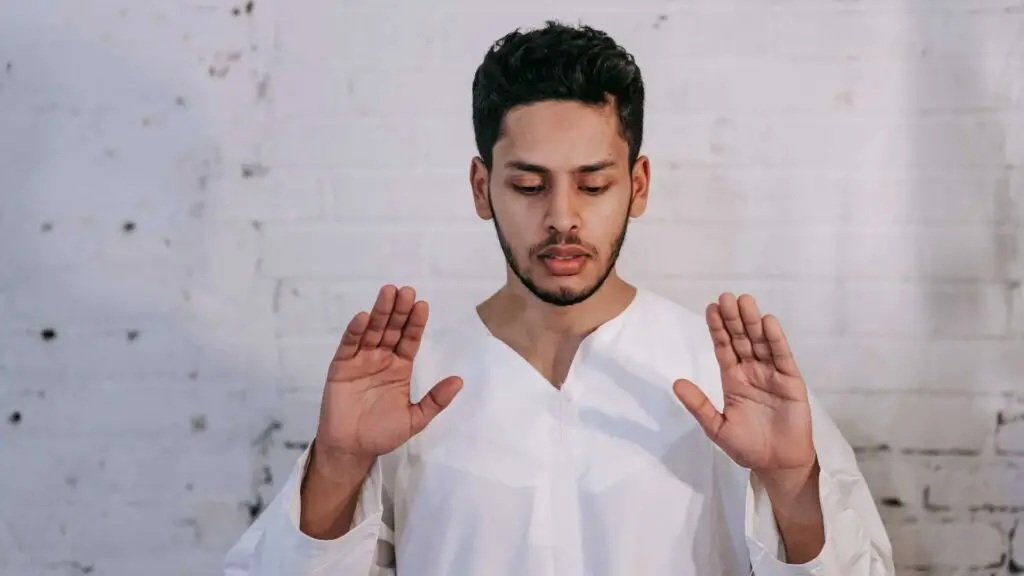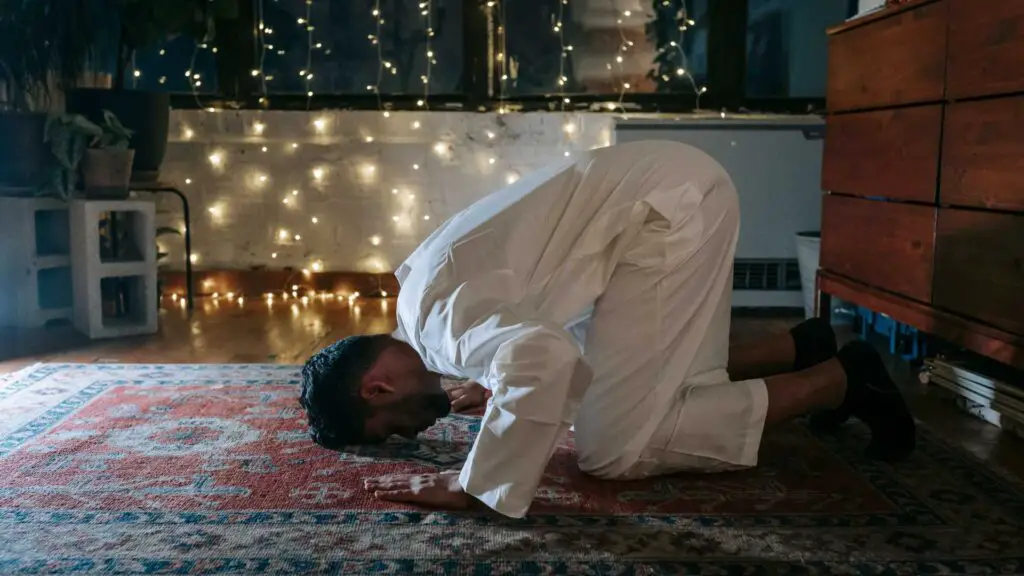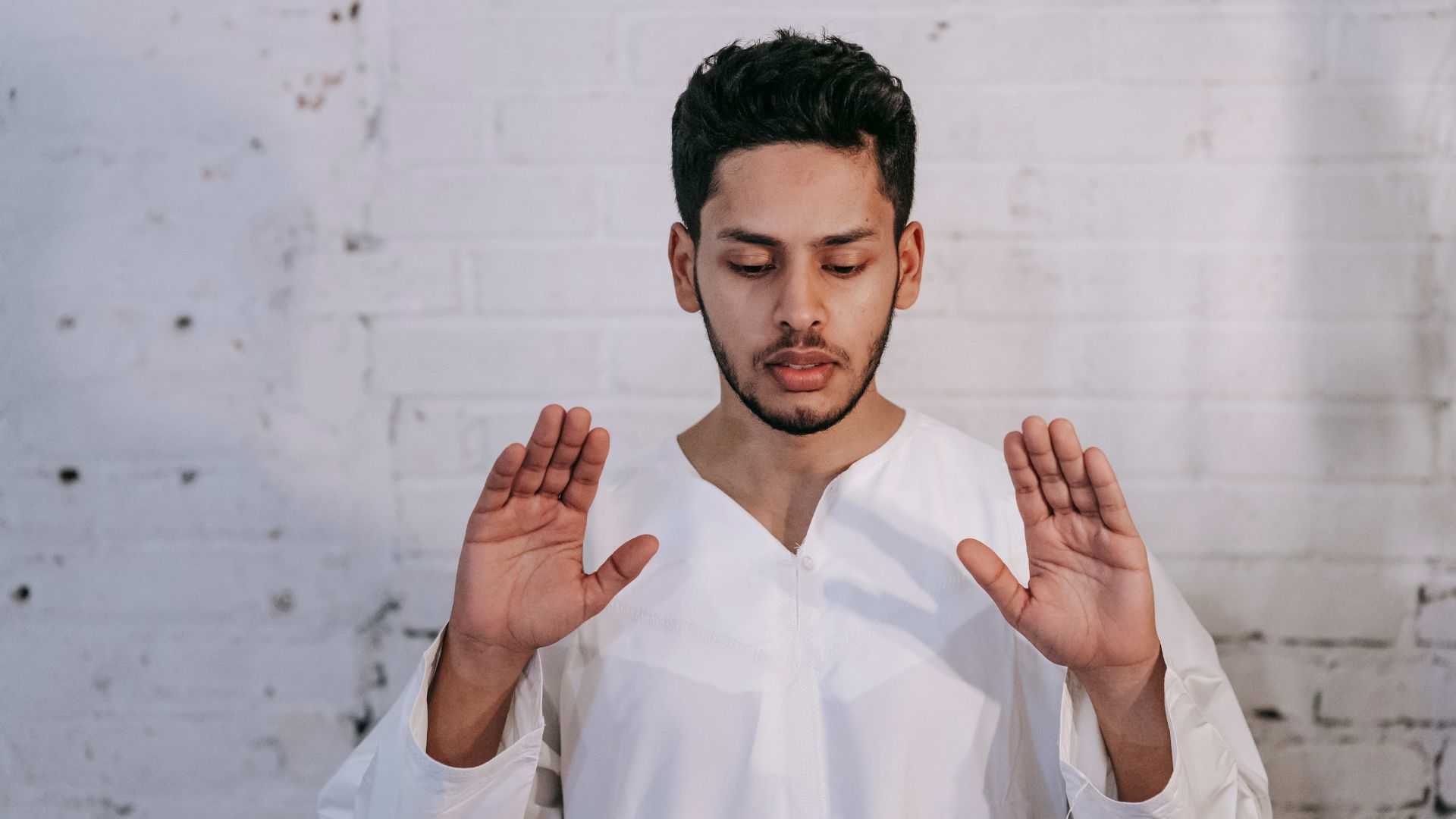Most Common Mistakes in Salah: When conducting salaah, Muslims frequently blunder or make mistakes. Due to their lack of information about how to perform a perfect prayer and their lack of concern for whether they are performing it in accordance with the Sunnah, many Muslims overlook these mistakes.
After acknowledging Allah’s Oneness, the second and most crucial of Islam’s five pillars is salah. All Muslims are required to do it by Allah (SWT). On the Day of Judgment, Salaah will be the first to be questioned.
Some common Mistakes in Salah (Islamic prayer) include:
1) Not performing Wudu (ablution) properly before prayer: To correct this, make sure to perform Wudu correctly, according to Islamic guidelines.
Also Read: How to do Wudu: A Step-by-Step Guide

2) Not facing the direction of the Kaaba (Qibla) correctly: To correct this, use a Qibla compass or locate the direction of the Kaaba using a map or other means.
3) Not standing straight during the standing position (Qiyam): To correct this, focus on keeping your back straight and your shoulders relaxed while praying.

4) Not performing the bowing (Ruku) and prostration (Sajdah) correctly: To correct this, make sure to follow the correct method for performing these actions, as taught by a knowledgeable person or from authentic Islamic sources.
5) Not reciting the appropriate verses or surahs (chapters) from the Quran during prayer: To correct this, make sure to learn and memorize the verses and surahs that should be recited during prayer.
6) Not paying attention to the meaning of the words recited during prayer: To correct this, focus on the meaning of the words and make an effort to understand what you are saying.
7) Taking a look around during the prayer: When people glance up during prayer, the Prophet (saw) warned that Allah might take away their sight. It is suggested that one maintains his gaze fixated on the area of prostration.
The Messenger of Allah ﷺ said,
“How is it that some people raise their eyes towards the sky during Salaah (the prayer)?” He stressed (this point) and added, “People must refrain from raising their eyes towards heaven in Salaah (prayer), or else their sights will certainly be snatched away.”
8) Not Performing the Takbir Al-Ihraam: The Takbir Al-Ihraam with Qiyaam, which entails saying “Allahu Akbar” and standing up straight at the start of the prayer, is one of the pillars of the prayer. Many of us lose out on doing the Qiyaam, the standing, for even a little minute when we arrive at the prayer late and the Imam is in Rukoo’ or Sujood.

9) Failing to cover the ‘Awrah: According to the requirements of the prayer, one must cover their ‘Awrah before beginning. This is everything but a woman’s face and hands. For a male, it is the region between the knees and the navel. While some of us may remember to cover our ‘Awrah, we must be careful since we can unintentionally ignore so while we prostrate.
10) Putting forearms down to the Elbows: Resting our forearms on the ground is still another error, despite the explicit Prophetic restriction:
“Do not rest your forearms on the ground like a dog when prostrating”.

11) Inaccurate Sujood: 7 bones must be touching the ground during the sujood, according to the Prophet (pbuh): the forehead, two hands, two knees, and two feet. Unfortunately, a lot of us will raise our feet during the sujood, invalidating it.
The Prophet ﷺ said:
“I was commanded to prostrate myself on the seven (bones) and forbidden to fold back hair and clothing. (The seven bones are): forehead, nose, hands, knees and feet.”
Sahih Muslim
12) Going in front of the Imam: Another frequent error in prayer is going in front of the Imam. We learned from the Prophet that the Imam was chosen and should be obeyed. In addition, he forewarned us that anyone who bows before the Imam should be afraid that Allah may change their face into a donkey’s. It is debatable whether this is literal or metaphorical, but either way, the warning is dire.
The Prophet ﷺ said
“Isn’t he who raises his head before the Imam afraid that Allah may transform his head into that of a donkey or his figure (face) into that of a donkey?”
Our Prophet ﷺ said
“The Imam is to be followed. So, bow when he bows, and raise your head when he raises his head.”
Sahih Al-Bukhari
13) Excessively moving about: The majority of scholars feel that excessive or constant movement renders your prayer ineffective. There is no question that such movements hinder one’s ability to concentrate during prayer, regardless of whether they are disliked or forbidden.
Certainly, the believers have succeeded. Those who during their prayers are humbly submissive.
Quran 23:1-2
14) Praying too quickly: The Prophet commanded us to pray so that we feel peace during the entire prayer. To bow until you experience peace in your bowing, to prostrate until you experience peace in your prostration, and to sit until you experience peace in your sitting.
15) Consuming odor-producing foods before praying: If you intend to pray at the mosque especially, avoid eating meals with strong flavors before beginning the prayer. These overpowering odors might divert attention. Brushing your teeth after consuming these items is one technique to deal with this issue.
16) Walking in front of someone who is praying: It is not appropriate to walk in front of someone who is engaged in prayer. If a person is utilizing a sutrah, an object they have placed in front of them while praying, this rule is an exception and you are permitted to walk in front of them. If someone is using the sutrah, it is OK to move in front of it because it serves as a form of barrier.
17) Leaving the phone on or using other loud gadgets: Other worshippers are greatly distracted by this, which happens frequently. Before beginning the salah, kindly turn off all phones and electronic devices to avoid disturbing others.
It’s also important to note that mistakes in Salah are normal and forgivable and that the most important thing is to have the right intention and to make a sincere effort to improve. But we should avoid these Mistakes in Salah.
Read more Islamic Blogs or Follow us on social media for daily Islamic reminders.






